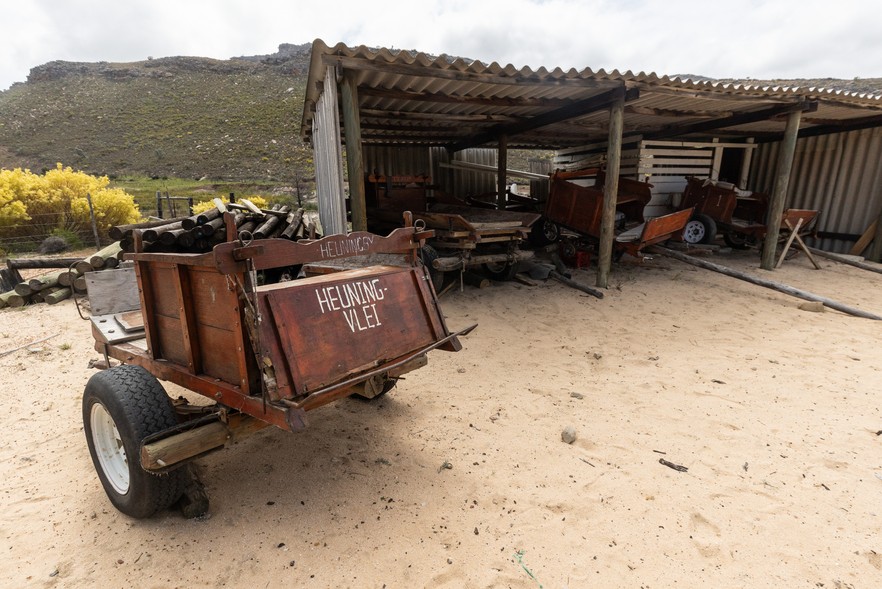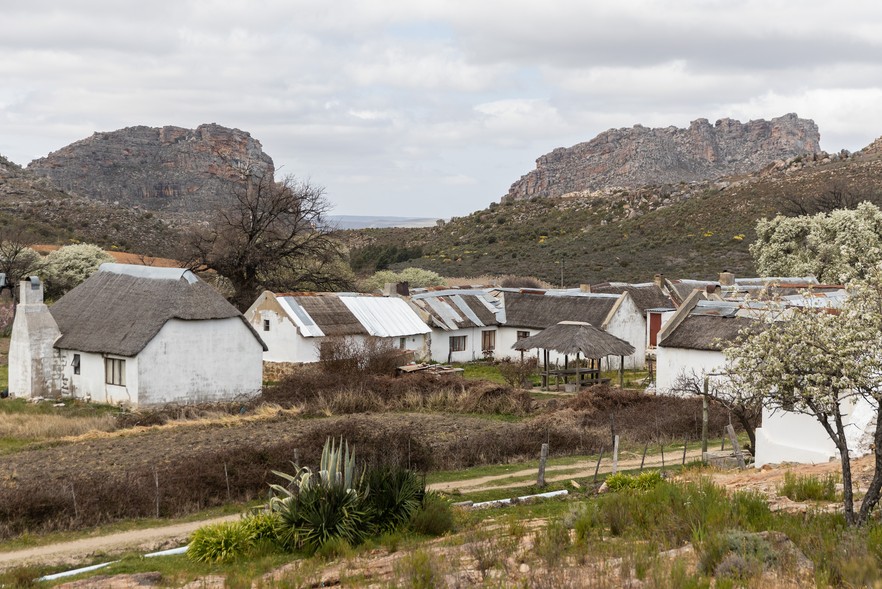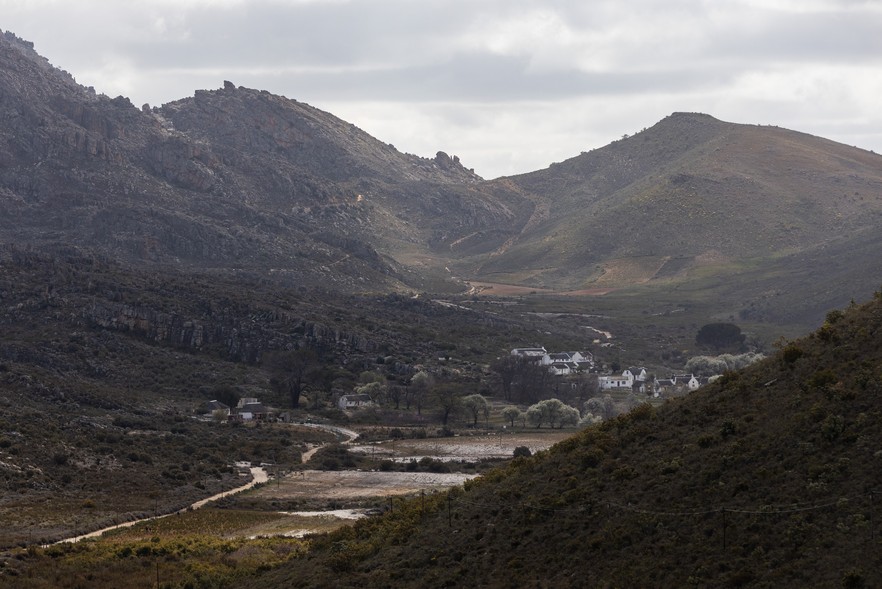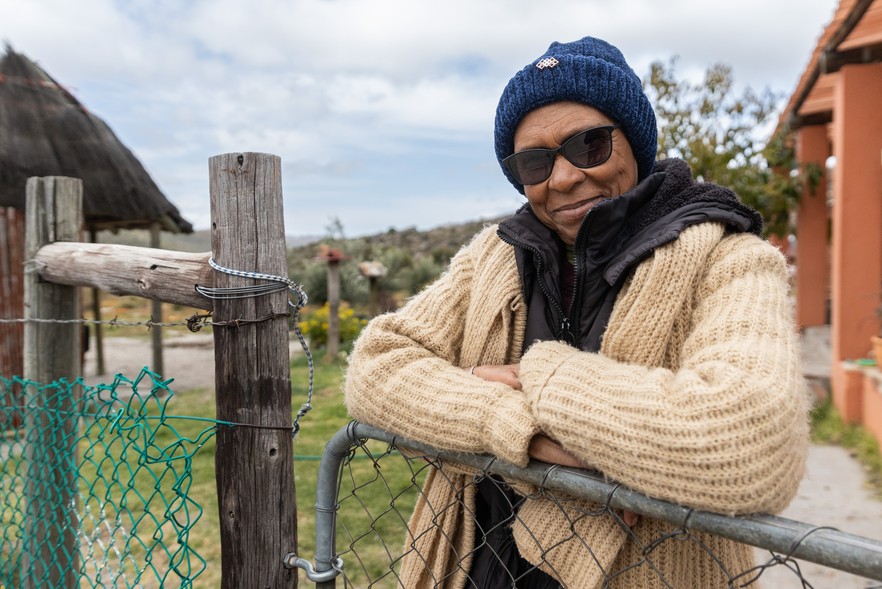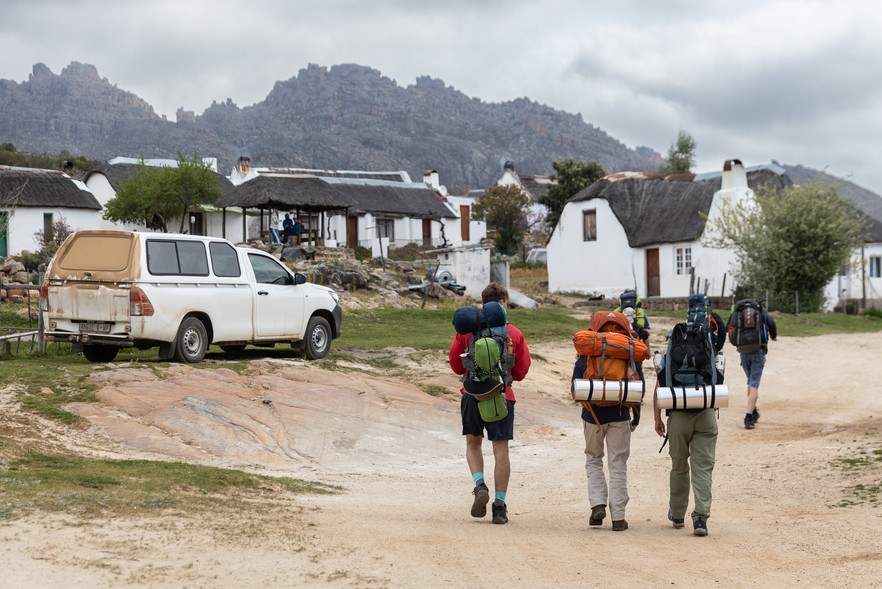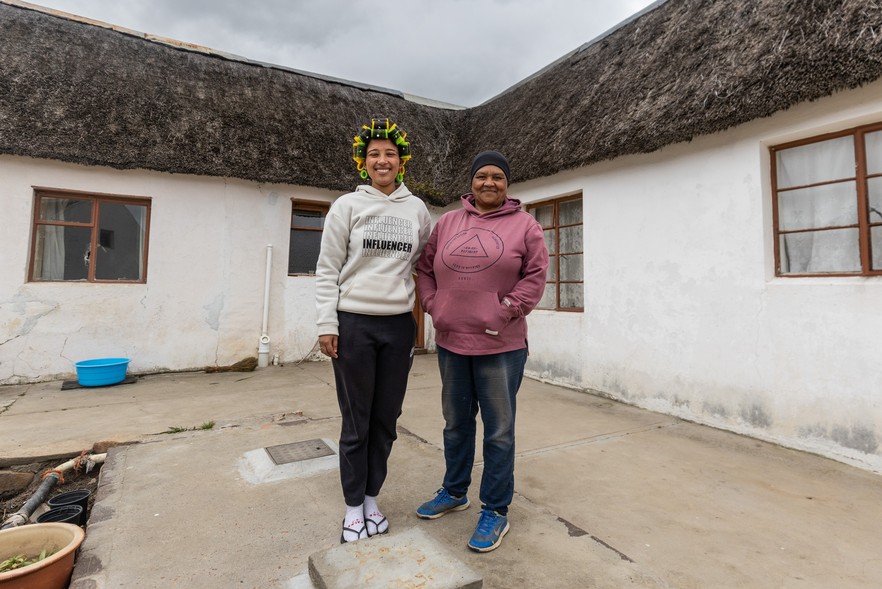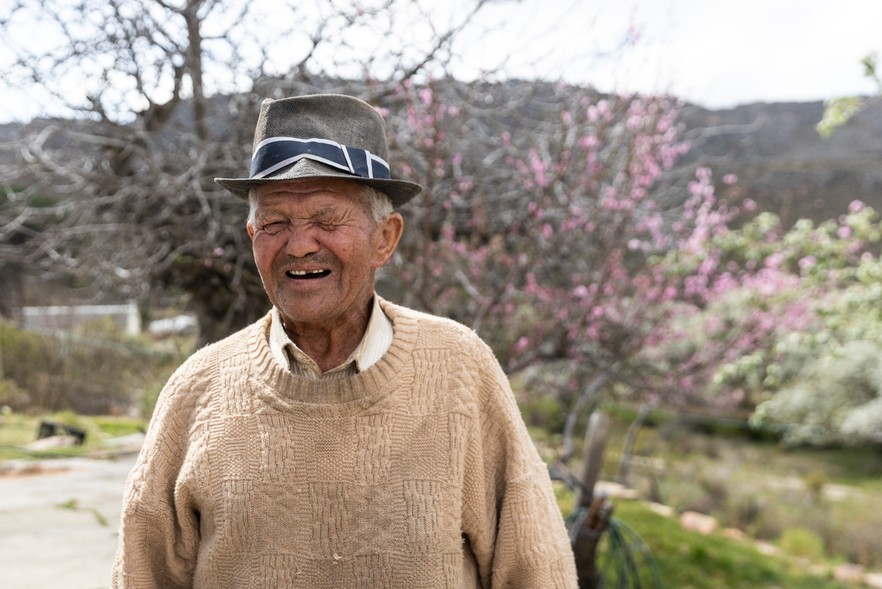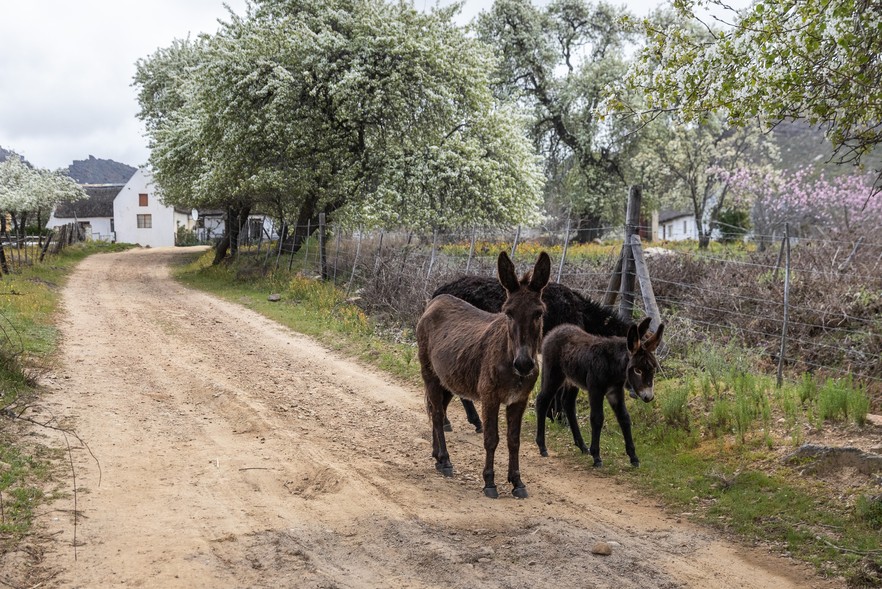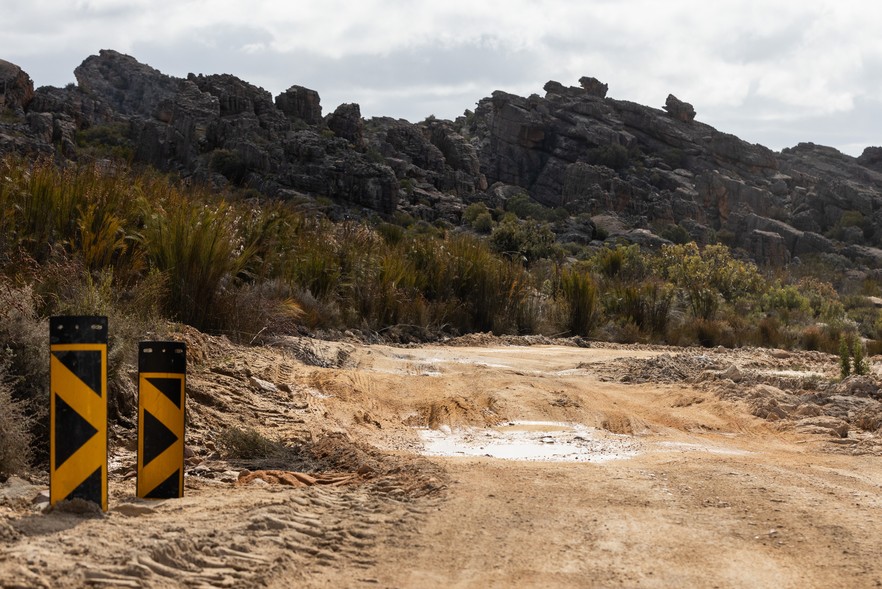Donkey carts stand idle as tourism dies in Cederberg village
Heuningvlei was devastated by flooding for two consecutive years but the residents are determined to keep their town alive
Heuningvlei’s traditional donkey cart trips have stopped since 2023 because roads in the surrounding Cederberg wilderness were washed away during winter storms. Many people in this remote village relied for income on hikers and tour groups visiting the donkey cart routes.
For years, people in the remote village of Heuningvlei in the Cederberg have relied on tourism and subsistence farming. But devastating floods and heavy rains since 2023 have wreaked havoc on the roads and infrastructure. Popular donkey cart trails had to close for months.
“Many tourists say it’s the most beautiful place … I agree. But to visit here and to stay here is different. This is a struggle to survive,” says Johannes Ockhuis, fondly known as Oom Hollie.
The 89-year-old is one of just 75 permanent residents of Heuningvlei. The village is located deep in the Cederberg mountains and about 15km from Wupperthal.
Most people in Heuningvlei are subsistence farmers and have historically cultivated rooibos. People also rely on tourism – providing lodging and tour guiding. The donkey cart trails were a primary means of employment for many of them.
Heuningvlei is in the Cederberg and home to about 75 people.
The two-hour Heuningvlei donkey cart trial, on the Krakadouw route, has been closed for months due to severe damage from rain and flooding. The trail runs from the top of the Pakhuis Pass and the Heuningvlei village.
The traditional carts are able to transport three people at a time, usually pulled by about six donkeys through the rugged Cederberg mountains.
The trail was established in 2006 as part of the Cederberg Heritage Route, an organisation helping with community development in the area. The donkeys, about 30 of them, roam freely in the town, and often graze in the bush, among the blooming pear trees.
According to CapeNature in 2023, river banks broke, flooding campsites, cottages and bridges and toppling trees.
Many roads in and around Heuningvlei were washed away or are in a bad state from heavy rainfall earlier this year.
Residents of Heuningvlei were cut off in 2023 and this past winter. The roads completely washed away and the power was off for days.
“We used to have rain but not like it is now. Roads are washed away and you need to build it again,” says Dalene van der Westhuizen, who runs the Heuningvlei tourism office.
“When it rains, you have nothing. No electricity. And you have to sit. You sit between the rivers, and you can’t go anywhere.”
Van der Westhuizen runs the Heuningvlei tourism office, and together with a committee also the backpackers lodge. It is the only accommodation in the town. The town also has no grocery shop, tuck shop or restaurant.
The backpackers frequently hosts church groups.
There are no grocery shops or restaurants in Heuningvlei. There is no public transport. The nearest clinic is in Wupperthal and the nearest hospital is in Clanwilliam.
The old school building, which closed down due to there being too few learners, was converted into a backpackers. It hosts single hikers or bigger groups, frequently church groups, says Van der Westhuizen.
Hikers would walk from the Pakhuis to Heuningvlei, overnight at the backpackers, then go to other end points further on the trail. The donkey carts would transport their luggage and also take them back to the starting point.
But since last year’s floods, the donkey cart routes have been closed because it is no longer safe to take the two-hour journey.
Long-time Heuningvlei resident Dalene van der Westhuizen runs the tourism office and the backpackers, with a committee, in the village.
“You can’t transport now. You saw what the roads look like,” says Van der Westhuizen.
The gravel road to Heuningvlei is destroyed and eroded in many places. Some sections had water puddles, and it is a challenge to access it even with a 4x4 vehicle.
For months, Van der Westhuizen has not been able to accept bookings from hikers or tour groups because of the road’s condition.
CapeNature is still assessing the extent of the damage. Spokesperson Luke Folb said the damage to the surrounding areas is “quite severe”.
It is in the process of appointing an engineer and “is currently using all the resources at its disposal to respond to flood and storm damage”.
CapeNature has also applied for additional funding through the Disaster Management Process. “This process requires patience and due diligence,” said Folb.
Hikers make their way through the village. Usually hikers would walk from Pakhuis Pass to Heuningvlei, and have donkeys transport their luggage throughout their hike but this hasn’t been possible for months.
The remoteness of Heuningvlei means that the villagers strive to be self-sufficient.
The villagers cultivate organic vegetables and rooibos. “We plant for ourselves,” says Van der Westhuizen. Almost every house in this village has a piece of soil they farm on, she says.
Once a month residents pay someone to take them to Clanwilliam to do all their errands, including collecting social grants, among other things.
Van der Westhuizen says people in the town still barter with one another. “You give me a bag of sugar, and I give you vegetables, a bag of potatoes, onions, pumpkins … We do it like it was in the old days,” she says.
Lumeca and her mother, Audrey Ockhuis, outside their home in Heuningvlei. Ockhuis said she enjoyed growing up in the remote village.
“What has been preserved is the farming. We are going on despite climate change. You must now just keep an eye on the weather, even with the rooibos plant,” said Van der Westhuizen. She says that each year they harvest later because of the floods.
There are few young people left farming in Heuningvlei.
Many leave to find work, says 21-year-old Lumeca Ockhuis, who is home for the holidays.
She studies business management at Boland College in Paarl.
“Most people go out to work in other places. There isn’t work or income,” she says.
89-year-old Johannes Ockhuis is the oldest person in the village and lived here for most of his life.
Meanwhile Johannes Ockhuis (Oom Hollie) says he does not regret spending his whole life in the town.
Ockhuis had been working in Lambert’s Bay and he was given an opportunity to study to become a mechanic. His uncle, who raised him with his aunt, suddenly died, leaving his aunt alone in their home in Heuningvlei.
“I had to go back. I had a duty to her,” says Ockhuis.
Today, he is the oldest person in Heuningvlei, and has been married to his wife for over 60 years – the longest marriage in the village.
“Is this not a privilege and a mercy that I received?” he asks.
Donkeys roam the streets in Heuningvlei.
Deep potholes in the road to Heuningvlei.
Support independent journalism
Donate using Payfast

Don't miss out on the latest news
We respect your privacy, and promise we won't spam you.
© 2024 GroundUp. This article is licensed under a Creative Commons Attribution-NoDerivatives 4.0 International License.
You may republish this article, so long as you credit the authors and GroundUp, and do not change the text. Please include a link back to the original article.
We put an invisible pixel in the article so that we can count traffic to republishers. All analytics tools are solely on our servers. We do not give our logs to any third party. Logs are deleted after two weeks. We do not use any IP address identifying information except to count regional traffic. We are solely interested in counting hits, not tracking users. If you republish, please do not delete the invisible pixel.

